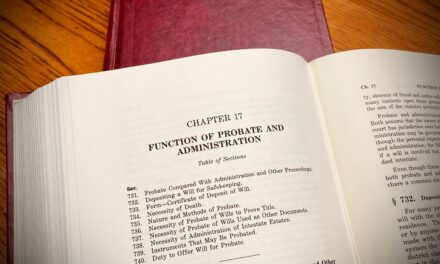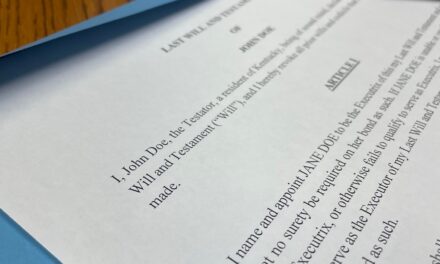This question comes up with almost all my probate clients – my (spouse/parent/other relative) just died, should I go ahead and pay their credit card debts or medical bills? Sometimes it’s not a question, but rather a statement, as in “I already paid their credit cards and doctor bills.” The short answer is “NO”! Generally the heirs of a deceased person should not pay these kinds of debts of that person without considering a few factors (and really should not pay other debts such as mortgages or car loans without first speaking with a probate lawyer to get guidance).
In Kentucky the primary reasons for NOT paying a deceased relative’s debts are (1) if you’re paying it from the deceased person’s assets, unless you have a court order authorizing the use of that person’s assets, then you’re spending money you’re not authorized to use (in some cases this can be considered a criminal offense, just the same is if I take money from your wallet without permission and pay my electric bill); (2) if you’re paying the debts from your own personal funds, you’re paying a debt you have no legal obligation to pay (obviously the exception is if the paying party is a co-signor with the decedent)!; and (3) Kentucky law (specifically KRS Chapter 396) has very strict rules on how and when creditors of a decedent can get paid.
In Kentucky creditors of a decedent are only entitled to be paid from assets of the decedent’s “estate” – the estate consists of all property owned by the person, but does NOT include life insurance proceeds paid to a beneficiary, or other types of assets that pass directly to a beneficiary upon death (i.e., retirement accounts, etc.). If a decedent has more creditors than assets, then there is liability for the person that has paid one creditor in full but failed to pay other creditors. Further, Kentucky offers an “exemption” in a decedent’s estate when that person leaves behind a surviving spouse or children. In essence, the exemption allows the surviving spouse or children to take up to $30,000 of a decedent’s estate free and clear of any creditor claim, which means in many instances a full probate case may not even be necessary!
It is understandable – and even admirable – that heirs think paying their loved one’s debts is the “right thing to do” but it can be so much more complex than that, and the wisest move when this situation arises is to talk to a probate attorney to ensure doing the “right thing” does not result in doing the legally “wrong thing”!



